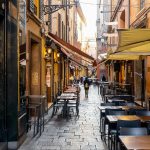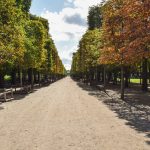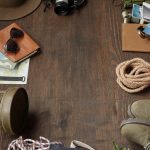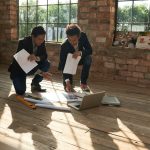British pearl fishing holds a rich and remarkable legacy in the world’s maritime history. This intriguing aspect of the past isn’t locked away in inaccessible archives, but is brought to life in the most active and engaging manner. The island nation, with its extensive seacoast and numerous islands, offers visitors plenty of opportunities to not only learn about this unique aspect of their history, but also to experience it hands-on, through various workshops and programs. These centers are accessible to the public, welcoming students, history enthusiasts, and tourists alike.
The Pearl Fishing Heritage at Isle of Wight
Nestled in the English Channel lies the Isle of Wight, an island where pearl fishing once thrived. It has become a hub for those seeking to learn about this craft. The city area of the island houses a notable museum, the Isle of Wight Pearl Centre.
Have you seen this : What are the most comprehensive guided tours of Iron Age hill forts in the UK?
This centre provides an interactive peek into the history of British pearl fishing. Not only do you have the opportunity to see a variety of pearls, but you also get to learn about the process of harvesting and treating them. The centre’s workshop program is particularly popular. Here, visitors can work hands-on with pearls, experiencing first-hand the delicate art of pearl fishing. The program is open to the public, with special arrangements available for students on study trips.
The Maritime Legacy at Portsmouth Naval Base
Another significant location that tells the tale of pearl fishing in British history is Portsmouth Naval Base, a city steeply rooted in the Royal Navy’s past. This naval base, which saw the likes of the HMS Victory and the Mary Rose, offers a unique dose of maritime history that is not limited to war stories.
Also to read : Where can tourists participate in detailed workshops on medieval herbal medicine?
At the base’s National Museum of the Royal Navy, you can delve into the details of the pearl fishing industry’s past. A dedicated workshop helps visitors understand the methods used by pearl divers, the risks they took, and the economic significance of their work. The workshop is not merely a lecture; it is an immersive experience, where you can try your hand at the art of pearl fishing under expert supervision.
The Historic Elegance at London’s Victoria and Albert Museum
In the heart of London, the city’s prestigious Victoria and Albert Museum has a section dedicated to pearls. It is an ideal spot for those wanting to learn about the artistic aspects of pearl fishing.
The museum’s program revolves around the history and cultural significance of pearls, showing how these treasures from the sea became a symbol of status and elegance. The hands-on workshop covers pearl extraction techniques, and even provides an opportunity to craft your own pearl jewelry. The museum’s program is open to everyone, from students to tourists, fostering a deeper appreciation for this precious commodity.
The Island Experience at Scapa Flow Visitor Centre and Museum
Located in the Orkney Islands off the coast of Scotland, the Scapa Flow Visitor Centre and Museum offers a unique perspective on British maritime history, focusing on the navy and pearl fishing.
The museum holds a special workshop that narrates the tale of local pearl fishers, their living conditions, and the significance of their work. The hands-on program allows visitors to experience pearl fishing techniques, such as cleaning, sorting, and drilling pearls, recreating the lives of pearl fishers in the past.
The Community Spirit at the Pearl House
In the city area of Aberdeen, the Pearl House is a community center that runs programs focusing on the local history of pearl fishing. Here, workshops are not just about history, but also involve a lot of community involvement.
Groups are encouraged to experience pearl fishing techniques: from diving to cleaning, drilling and stringing. The program’s highlight is a communal pearl fishing event, where participants can try to find their own pearls in the center’s artificial seabed.
In these places, the history of British pearl fishing is not merely a tale to be told, but a legacy to be experienced. They offer an unforgettable hands-on journey into the past that not only educates but also immerses visitors in a unique aspect of British maritime history.
Pearl Fishing Workshops at London’s Public Library
Diving deeper into the city’s educational and cultural venues, the Public Library of London also hosts a series of events devoted to the history of British pearl fishing. These workshops are part of the library’s continuing education program and are open to the public.
The library’s initiative, while focused on knowledge dissemination, also promotes community involvement. Their open house events feature experts in the field who lead discussions on the historical, cultural, and economic aspects of pearl fishing. These annual events are designed to be interactive, inviting attendees to participate in hands-on activities that echo the experience of pearl fishing.
In this context, attendees will learn about the different pearl extraction techniques, the tools used, the pearls’ grading process, and how these practices have evolved over time. The workshops also highlight the role of pearl fishing in the British maritime history and its ramifications in the United States during the Pearl Harbor era.
A major attraction at these events is the creative writing workshop. Here, participants are encouraged to craft stories inspired by the lives of pearl fishers. These stories are then compiled and made available in the library for future readers, ensuring the legacy of pearl fishing is continually passed down.
The Unique Perspective at African American and Native American Maritime Centers
A crucial part of understanding the history of British pearl fishing is recognizing its global impact. The African American and Native American Maritime Centers in the United States provide a unique perspective on this. These centers offer guided tours and workshops that reveal the untold stories of African American and Native American pearl fishers’ contributions to the industry.
The guided tours offer a comprehensive view of the history of pearl fishing, covering its roots in the British Isles, its spread to the United States, and its impact on the African American and Native American communities. The workshops, on the other hand, focus on the practical aspects of pearl fishing. Attendees will receive instructions on the traditional techniques of pearl diving, extracting, and treating pearls, under the guidance of experienced instructors.
These centers also host high school field trips, allowing students to learn about the history of pearl fishing while experiencing it hands-on. At the end of the program, participants who successfully complete the workshop will receive a certificate of completion and, if unsatisfied, are eligible for a full refund.
The Maritime Centers’ workshops are not just about imparting knowledge; they are designed to foster a sense of respect and admiration for the hard work and dedication of the African American and Native American pearl fishers of the past.
From the Isle of Wight to London’s Victoria and Albert Museum, Portsmouth Naval Base to the Scapa Flow Visitor Centre, every location offers a unique lens through which to view the history of British pearl fishing. Each workshop provides insight, education, and hands-on experiences that allow attendees to walk in the shoes of pearl fishers of the past.
Whether it’s at the bustling hub of the Pearl House in Aberdeen or across the pond at the African American and Native American Maritime Centers, the legacy of British pearl fishing continues to thrive.
The workshops and programs these centers offer serve as a testament to the rich maritime history of Britain. They play a pivotal role in ensuring this significant chapter of history is not just read about in history books, but is lived and experienced. These centers are not just preserving the past; they are shaping the future by teaching us valuable lessons about community, perseverance, and the profound impact of an industry that helped shape the world as we know it.
















